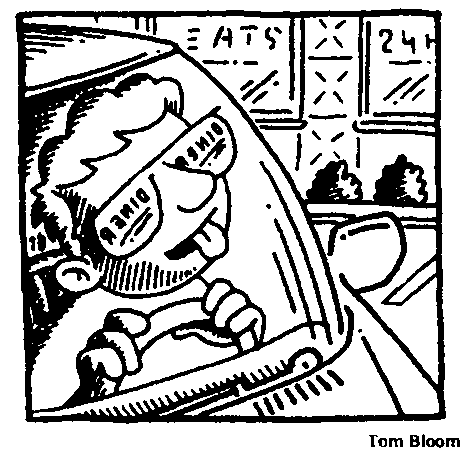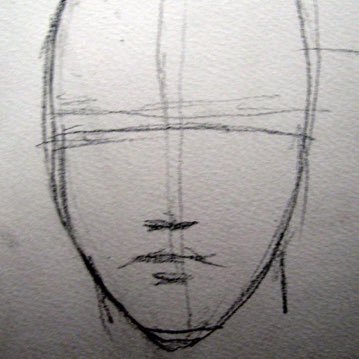
andrew garber - edu/acc 📚
@garberchov
Followers
888
Following
28K
Media
634
Statuses
7K
building the education that 13yo me wanted (founder @ https://t.co/yj2Bynuc2k)
accelerating education @
Joined September 2018
The edu/acc manifesto "I've noticed a fascinating phenomenon in my twenty-five years of teaching: schools and schooling are increasingly irrelevant to the great enterprises of the planet. No one believes anymore that scientists are trained in science classes or politicians in
10
15
83
heretic school(soon to be rebranded) hit top 20 token usage for Gemini 2.5 Flash Image on openrouter - cool :)
0
0
6
i fear the nutritioncels may not like this, but this is what leads to peak performance
0
0
0
a half-gallon of milk and 3 diet cokes a day keep the doctor away :)
1
0
2
I am a 19yo founder building the education I wanted at 13 getting after it, in the last 24 hrs: - continuing to optimize the curriculum generation algorithm, it is about ready, just fixing a few edge cases. Will be launching tomorrow(let's go!) - rebrand underway, need new logos
1
0
4
I am a 19yo founder building the education I wanted at 13 shipping as hard as i can, in the last 24 hrs: - refactored the crap out of our curriculum generation algorithm because it was slow as hell, and it ruined the sign up experience. about 96% done. think i can get a little
2
1
13
A personal request to @CerebrasSystems and @andrewdfeldman, please put an open source image generation model on Cerebras hardware and expose it over openrouter - really fast image generation would be absolutely invaluable.
0
0
2
I am a 19yo founder building the education I wanted at 13 shipping my ass off(back from injury + family sutff), in the last couple of days: - big fixes to mentor, some shit had broken as we made some big UI/UX changes, so fixed that - completely rebuilt how article generation
2
1
9
Realized that the girl who was friends with my twin brother who complimented my arms at dinner twice(in front of my parents), played with my dog with me, asked about what I was working on, and argued about Aristotle with me was actually flirting with me 3 months later.
One time I drove a girl home from school and she invited me inside for cookies and I said no thanks I have to get to practice but I'll take some cookies for the road The look on her face when she brought me out the cookies
2
0
2
It’s amazing how the act of doing work makes you more optimistic My worst pessimism / cynicism is always after not getting anything done
3
3
42
The oppressor/oppressed narrative of progressivism, when applied with the overarching term feminism to women, has been extremely effective in converting gen z women to a zero sum mindset, and in that world, why have kids? Nihilism must be defeated
Our NBC News Decision Desk poll asked Gen Z adults (18-29 years old) what they consider important to a successful life. The combination of gender and politics produced two very different sets of priorities:
0
0
2
Yes, but it's violence should be minimized to the point of where maximum individual liberty meets enforcement of law/non-aggression principle
A government is the “biggest gang,” with a local monopoly on violence. It’s good at preventing and stopping things. It’s bad at building and running things. Its main job is law and order, and a government which fails at that, is a failed government.
0
0
1
My GOAT
0
0
2
Public school is teaching degrowth lies because it fits the nihilistic worldview of those who support one size fits all education - we must edu/acc
When I tell Duke students this, I have had several just openly call me a liar, in class. It can't be true. Because if it is, then their high school educations were largely fraudulent. Sorry, kids.
0
0
4
y'all need to be pushing your platonic friendships to greater levels of depth and intimacy - so much unexplored alpha here
2
1
6
excited to try this - benchmarks look very good, with fine tuning for code could be a monster.
Big news: Introducing Qwen3-Max-Preview (Instruct) — our biggest model yet, with over 1 trillion parameters! 🚀 Now available via Qwen Chat & Alibaba Cloud API. Benchmarks show it beats our previous best, Qwen3-235B-A22B-2507. Internal tests + early user feedback confirm:
0
0
2
This isn't really news? We knew they were designing their own inference hardware months ago - still feel like probably better to just buy an accelerator company, but maybe better for model to chip optimization
BREAKING: OPENAI COOKING ITS OWN AI INFERENCE CHIP > Richard Ho (ex-Google TPU) leading 40 engineers > broadcom providing critical design and IP > TSMC will fab it on 3nm node > inference only > target mass production in 2026 > could fail on first tape-out
0
0
2
Important to note that Cerebras still doesn't have a Kimi K2 deployment and that Groq still doesn't have Qwen3 Coder/235b. Really interesting
.@Kimi_Moonshot just released Kimi-K2-0905 and here's the scoop: > 2x context window (131k to 256k) > trained for improved tool use, esp in agent harnesses like Cline > it's markedly better at frontend Try it now in Cline 🌔
0
0
1
🔴 WSJ: “A genocidal army doesn’t take two years to win a war in a territory the size of Las Vegas. A genocidal army doesn’t send SMS warnings before firing or facilitate the passage of those trying to escape the strikes. A genocidal army wouldn’t evacuate, every month, hundreds
239
2K
8K






















